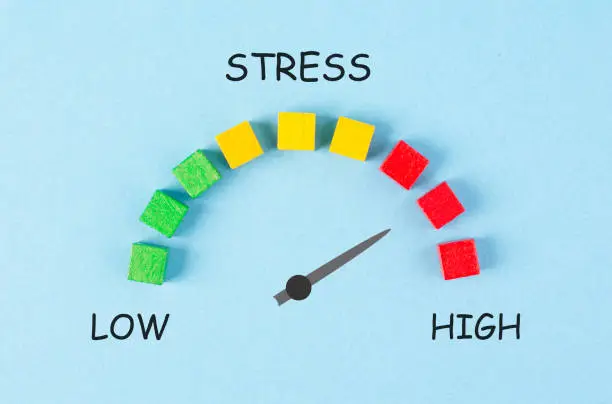In today’s fast-paced world, stress has become a near-constant companion for many individuals. Whether it stems from demanding jobs, personal responsibilities, or the pressure to succeed, stress can quickly escalate into burnout if left unchecked. Burnout, a state of emotional, physical, and mental exhaustion caused by prolonged stress, can take a serious toll on your health and well-being. Recognizing the signs of burnout and adopting effective coping strategies is essential to regain balance and maintain a high quality of life.
Understanding Burnout

Burnout often manifests in three dimensions:
Emotional exhaustion: Feeling drained, overwhelmed, or unable to cope.
Depersonalization: Becoming detached from work or personal relationships.
Reduced sense of accomplishment: Feeling ineffective or unproductive, despite efforts.
If you’ve been feeling perpetually tired, cynical, or ineffective, it might be time to take a step back and assess whether burnout is affecting your life.
Strategies to Combat Burnout
1. Prioritize Self-Care
Self-care is not a luxury; it’s a necessity. Regularly dedicating time to activities that recharge you can significantly reduce stress. Consider:
Exercise: Physical activity releases endorphins, improving mood and energy levels.
Sleep: Aim for 7-9 hours of quality sleep each night to restore your mind and body.
Nutrition: A balanced diet rich in whole foods can support your overall health. At Terah Nexus, our professionals are committed to providing optimum nutrition guidance to help you achieve your wellness goals.
2. Set Boundaries
Overcommitting and constantly saying “yes” can quickly deplete your energy. This behavior often stems from deeper root causes, such as:
- Perfectionism: A desire to do everything flawlessly can lead to taking on too many tasks to prove your capabilities.
- Fear of Disappointment: Worrying about letting others down or not meeting expectations can push people to overcommit.
- Low Self-Worth: A belief that one’s value is tied to productivity or pleasing others can fuel overextension.
- Poor Time Management: Difficulty in assessing how much time tasks require can result in agreeing to more than may be feasible.
- Cultural or Workplace Norms: Environments that celebrate hustle culture or overachievement can pressure individuals to overextend themselves.
- Lack of Boundaries: Struggling to set and maintain personal boundaries often leaves people feeling obligated to accommodate every request.
Learn to: Overcommitting and constantly saying “yes” can quickly deplete your energy. Learn to:
- Delegate tasks at work or home.
- Say no to requests that stretch you too thin.
- Schedule downtime and protect it like any other appointment.

3. Practice Mindfulness
Mindfulness helps ground you in the present moment, reducing anxiety and improving focus. Techniques include:
Meditation: Just 10 minutes a day can make a difference.
Deep breathing exercises: These can calm your nervous system in moments of acute stress. Aim for 5-10 minutes per session to fully engage your parasympathetic nervous system and achieve relaxation.
Gratitude journaling: Reflect on positive aspects of your day to shift your mindset.
4. Seek Support
You don’t have to navigate stress alone. Reach out to:
- Friends and family: Share your feelings and lean on trusted relationships.
- Colleagues or mentors: They might offer valuable advice or assistance.
- Therapists or counselors: Professional guidance can provide tools to manage stress effectively.
5. Reassess Your Priorities
Sometimes, burnout signals a misalignment between your values and your daily actions. Reflect on:
- What truly matters to you
- How you can shift your focus to activities that bring joy and fulfillment.
- Long-term goals and whether your current path aligns with them.
6. Take Breaks
Regular breaks can prevent exhaustion and boost productivity. Options include:
Micro-breaks: Short pauses throughout the day to stretch or breathe.
Vacation: A change of scenery can help reset your perspective. However, if time or finances don’t allow for a full vacation, consider alternatives like a staycation, exploring local attractions, spending time in nature, or dedicating a day to relaxation and activities you enjoy at home.
Digital detox: Unplugging from technology can reduce mental clutter. Excessive digital usages have been linked to increased stress, sleep disturbances, and decreased attention span. Prolonged screen time can also disrupt circadian rhythms and exacerbate feelings of isolation or anxiety, highlighting the importance of taking regular breaks from devices.
Building Resilience for Long-Term Balance
Preventing burnout isn’t just about reacting to stress but building resilience to handle it effectively. Cultivating habits like staying connected to supportive networks, maintaining a positive outlook, and regularly reassessing your goals can help you sustain a high-stress lifestyle without sacrificing your well-being.
Remember, your mental and physical health is your greatest asset. By taking proactive steps to manage stress and prevent burnout, you can lead a more balanced and fulfilling life. If you’re feeling overwhelmed, start small—even minor adjustments can pave the way for significant improvements over time. If you or someone you know is struggling with burnout, reach out to Terah Nexus where our team is more than capable of assisting.
